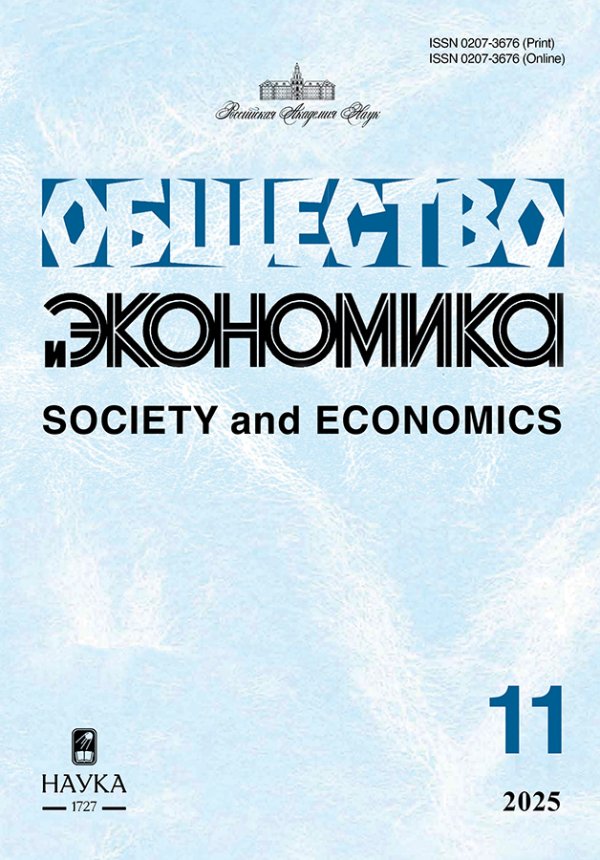Системный подход к формированию и управлению образовательной экосистемой: глобальные тенденции, угрозы и направления развития
- Авторы: Дадалко В.1, Николаевский В.2, Сидоренко С.3
-
Учреждения:
- РУДН
- Белорусский национальный технический университет
- Российская академия наук
- Выпуск: № 4 (2024)
- Страницы: 69-81
- Раздел: ВОПРОСЫ СОЦИАЛЬНОЙ СФЕРЫ
- URL: https://gynecology.orscience.ru/0207-3676/article/view/673779
- DOI: https://doi.org/10.31857/S0207367624040067
- ID: 673779
Цитировать
Полный текст
Аннотация
В статье показана значимая роль информационно-коммуникационных технологий для социально- экономического развития в общем и для создания непрерывной системы образования. Показано, что система образования строится не только на образовательных технологиях, но и на учете национальных и культурных особенностей. Предложена концептуальная модель построения экосистемы образования на основе цифровых платформ – унифицированных модулей: школа, профессиональное училище, колледж, университет. Образовательная экосистема основана на интеграции модулей в реальную цифровую платформу поддержки и развития предпринимательства, в которую также интегрировано послевузовское образование. Такой подход позволяет стимулировать, развивать и выявлять творческие способности на всех стадиях жизненного цикла. Однако он требует повышенного внимания к институциональной основе системы образования: качеству кадрового состава преподавателей, источникам финансирования, культурной среде образовательного процесса и др.
Полный текст
Об авторах
Василий Дадалко
РУДН
Автор, ответственный за переписку.
Email: antikrizis1@bk.ru
доктор экономических наук, профессор, действительный член (академик) Академии военных наук, профессор Высшей школы промышленной политики и предпринимательства
Россия, МоскваВладимир Николаевский
Белорусский национальный технический университет
Email: v.nikolaevsky@tut.by
кандидат экономических наук, доцент
Белоруссия, МинскСергей Сидоренко
Российская академия наук
Email: sidor@presidium.ras.ru
доктор экономических наук, профессор, начальник экспертного управления
Россия, МоскваСписок литературы
- Ковалев М.М. Цифровая экономика – шанс для Беларуси: моногр. М.М. Ковалев, Г.Г. Головенчик. Минск: Изд. центр БГУ. 2018. 327 с.
- Дадалко В., Николаевский В., Сидоренко С. «Цифровая экономика» как понятийный волюнтаризм в управлении экономикой // Общество и экономика. 2023. № 11. С. 20–46. https://doi.org/10.31857/S020736760028784–1
- 35 Global Trade – Securing Future Growth. ICC Global Survey on Trade Finance [Electronic resource] // International Chamber of Commerce. – Mode of access: https://iccwbo.org/content/uploads/sites/3/2018/05/icc-2018-global-trade-securing-future-growth.pdf (дата обращения 13.12.2020).
- Добролюбова Е.И., Южаков В.Н., Ефремов А.А., Клочкова Е.Н., Талапина Э.В., Старцев Я.Ю. Цифровое будущее государственного управления по результатам // Ежедневное онлайн-издание D-russia.ru. URL: https://d-russia.ru/wp-content/uploads/2019/01/TSifrovoe-budushchee-gosudarstvennogo-upravleniya-po-rezultatam.pdf. (дата обращения 13.12.2020).
- Николаевский В.В. Цифровая экономика: сущность, определение и онтология экономической системы в контексте информационно-коммуникационных технологий // Финансы и кредит. 2022. Т. 28. № 11. С. 2593–2628. https://doi.org/10.24891/ fc.28.11.25936.
- Дадалко В.А., Николаевский В.В., Слоботчиков О.Н., Чумак Г.В. Цифровизация как определяющий цивилизационный фактор системы организации образования // Вестник института мировых цивилизаций. 2021. Т. 12. № 1 (30). С. 17–27.
- Дадалко В.А., Николаевский В.В., Слоботчиков О.Н., Чумак Г.В. Системный подход к организации образования: политические и цивилизационные аспекты // Вестник института мировых цивилизаций. 2020. Т. 11. № 4 (29). С. 6–16.
- Николаевский В.В. Отчет о научно-исследовательской работе «Методология использования информационно коммуникационных технологий для создания, развития и сертификации электронного (дистанционного) образования в системе подготовки, переподготовки и повышения квалификации» (по ГПНИ «История, культура, общество, государство 6.2.08). Минск: БГЭУ. 2011.
- Паспорт федерального проекта «Цифровая образовательная среда». URL: https://edu54.ru/upload/files/2016/03/Федеральный%20проект%20Цифровая%20образовательная%20среда.pdf
- Маршалл А. Основы экономической науки. М.: Эксмо. 2007. 832с.
- Дондокова Е.Б., Пильчинова Е.В. Эволюция определения понятия «производительные силы» в различных экономических школах // Вестник ВСГУТУ. 2014. № 6. C. 120–125.
- Николаевский В.В. Достижения или утраченные возможности? // Свободная мысль. 2015. № 2. С. 81–94.
Дополнительные файлы













